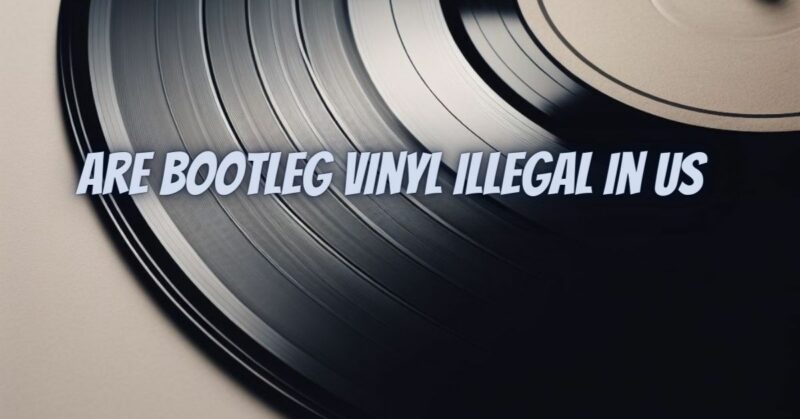The world of vinyl records has seen a resurgence in popularity in recent years, with collectors and enthusiasts flocking to record stores, flea markets, and online marketplaces to build their collections. Among the various types of records available, bootleg vinyl records often raise questions about their legality. In this comprehensive article, we will delve into the legal status of bootleg vinyl records in the United States.
Understanding Bootleg Vinyl Records
Bootleg vinyl records, also known as bootlegs or counterfeit records, are unauthorized copies of music albums. These records are typically produced without the permission of the copyright holder, which is usually the artist, record label, or music publisher. Bootlegs can encompass a wide range of music genres, including rock, jazz, hip-hop, and more, and may include live performances, unreleased tracks, or alternative studio recordings.
The Legal Framework in the United States
The legality of bootleg vinyl records in the United States is primarily governed by federal copyright law, specifically the Copyright Act of 1976. Several key factors influence the legal status of bootleg records:
- Copyright Infringement: Copyright law grants exclusive rights to artists and copyright holders, including the right to control the reproduction and distribution of their work. Bootleg vinyl records typically infringe upon these rights by reproducing copyrighted material without authorization.
- Sound Recording Act: In 1994, the United States enacted the Sound Recording Act, which criminalized the unauthorized reproduction and distribution of sound recordings, including bootlegs. This law strengthened the legal framework against bootlegging.
- Enforcement: Enforcement of copyright laws regarding bootleg records can vary. While some copyright violations are pursued more vigorously than others, the production and sale of bootleg vinyl records are generally considered illegal in the United States.
- Fair Use and Public Domain: Some exceptions to copyright law exist, such as fair use and public domain, but these are typically not applicable to bootleg vinyl records. Fair use exceptions are limited and rarely apply to bootlegging.
- Personal Use vs. Commercial Sale: While the sale of bootleg records is almost universally illegal, the personal possession of bootlegs for non-commercial use may be subject to varying interpretations. However, possessing bootlegs can still indirectly support copyright infringement.
The Ethical Dimension
Beyond legal considerations, there are ethical concerns associated with bootleg vinyl records. Supporting bootlegging can harm artists and the music industry by depriving them of revenue and creative control. Many artists depend on income from their music to sustain their careers and fund future projects.
In summary, the legality of bootleg vinyl records in the United States is influenced by federal copyright law, the Sound Recording Act, and varying enforcement practices. While the legal landscape may have nuances, the fundamental principle remains that bootlegs typically infringe upon copyright laws. Collectors and music enthusiasts should be aware of these legal complexities and consider the ethical implications when deciding whether to purchase or possess bootleg vinyl records.
Supporting official releases and respecting the rights of artists and copyright holders is not only a legally sound choice but also a way to contribute to a thriving and sustainable music industry. The question of whether bootleg vinyl records are worth the legal and ethical risks ultimately rests with individual collectors and their values and priorities.


